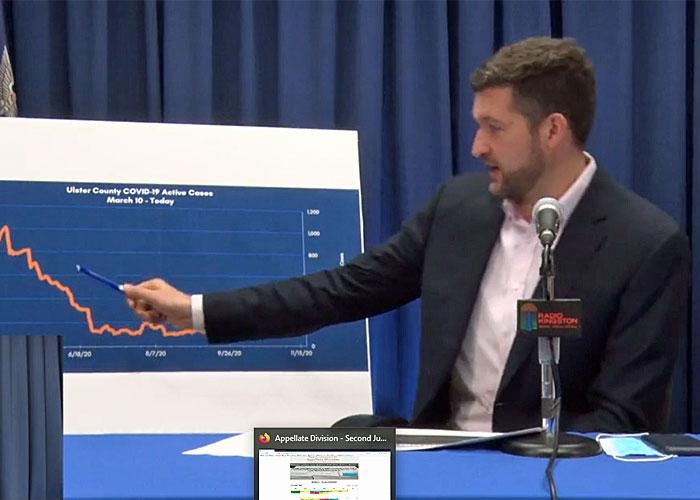KINGSTON — COVID 19 cases are the highest they’ve been in Ulster County since April and hospitalization rates are projected to exceed those of that time, but the county is preparing and is expecting their first round of vaccines in late December- early January.
According to a report given at Monday’s Ulster County Legislature Public Health and Social Services Committee, Deputy County Executive Marc Rider said although testing is much more widespread, which leads to higher numbers of positives, the current average hospitalization rates and positive cases are exceeding that of March-April.
“While back then, at the peak, we may have had 1,000 individuals who were active, our numbers on a daily case-by-case basis are actually higher now, on a 14 day to 30-day average, than they were back then,” said Rider. “We’re near our peak essentially, or not near our peak, we’re near our past peak, but we’re just continuing to rise,” he said.
The winter months are presenting an issue regarding drive-through testing.
The county will soon be setting up heated stations for nurses close to vehicle bays to mitigate this, but Rider said the growing numbers are necessitating more public health nurses, which due to the education level and salary, have been hard to staff.
The county has received CARES Act funding for two LPNs and a supervising public health nurse starting in January, but they may have to continue using contracted nurses if cases continue to rise at the rate they are. The county is also creating the position of director of COVID Operations to accommodate the county’s needs and provide leadership in this area during the current wave.
Since the county is expecting their first round of COVID vaccines by January, the hope is infected numbers will begin to round out before things get out of control.
Vaccinations will be rolled out in four phases, the first of which goes to healthcare workers. After that, it will go to long-term care facilities, then to EMS and essential workers before it is given to the general public.
The vaccines, that are predicted to come from Pfizer and/or Moderna, will require two inoculations approximately a month apart.
From this point forward, the Public Health and Social Services Committee will be giving monthly COVID updates.








